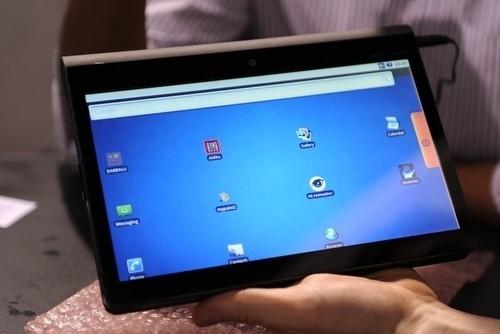CES 2010 Wrap-Up: Noah's Top 5 Devices

Why an E-Reader in my Top 5 CES Devices when it's not a Kindle? Because this is the E-Reader that's got Kindle rethinking its long-term future.
Notion Ink's Adam takes the E-Reader concept and adds enormous value to it by way of Pixel Qi's dual-mode display technology. People like E-Readers because their E-Ink screens are easier on the eyes than LCD display for long-term reading sessions. But $300 read-only devices are, and will always be, a niche market (even if the niche of "readers" is a fairly big one). Shoehorning everything from HTML Web browsers to Android OS into an E-Ink device adds functionality, but it's greyscale functionality. And who really wants to browse the Web or watch Leno-vs-Conan video clips in greyscale?
Enter Pixel Qi and their technology that enables a single display panel to shift from an E-Ink-style high contrast greyscale, without backlighting, that's optimized for displaying book-like text to a full-color LCD meant for computer-esque tasks like Web browsing and photo viewing. The tech isn't 100% there yet, but it's far enough along to clearly show a near-term future in which convergence rules and single purpose tablets like Kindle and Nook should be faced with rapidly declining sales figures. Of course Kindle and Nook are backed by two of the largest retailers of books on the planet, so don't count them out just yet. But I'd bet we're more likely to see subsequent K's and N's with similar dual-mode displays than without them.
Adam takes advantage of that multitasking display, if you will, by backing it with Android 2.0 and NVIDIA's new Tegra 2 processor. By the time thing thing's ready to ship, we should be seeing Android 2.1 (at least) and refined software including more and better text input options. And after Adam, don't you think we'll see more convergence devices with displays built to adapt to use cases and external conditions like direct sunlight?
As Jon Herrmann put it over on Gizmodo, "The bullet's in the chamber. E Ink is going to die." Which is good, because for as nifty a transitional technology as E-Ink is - I mean, has been - a $300 device that pulls off book reading and Web surfing has a lot more value in the global marketplace than a $300 dedicated E-Reader. No matter how many Kindles were gifted for Xmas 2009.
Previous: Palm Pre Plus
Next: Google Nexus One